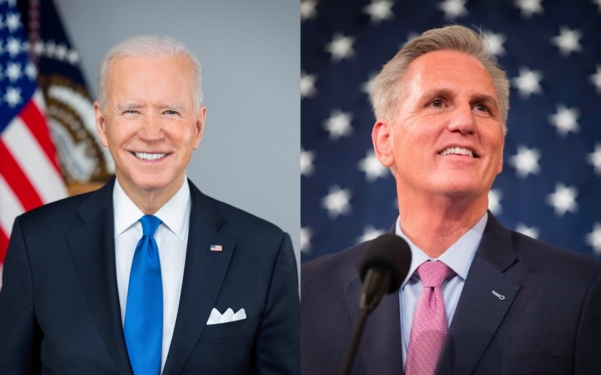
Amid all the static surrounding the debt ceiling deal that President Biden and Speaker McCarthy struck over the weekend, this much is certain: the deal is better for American seniors than a federal default. “The agreement represents a compromise, which means no one got everything they wanted,” said President Biden on Monday. “But that’s the responsibility of governing.” Many observers feel that the President and his party — and the American people — came out ahead.
“(The debt ceiling deal is) a win for Democrats, who sought to avoid having another debt limit showdown ahead of next year’s election. And they protected many programs that Republicans sought to slash.” – The Hill, 5/28/23
“Based on what we’ve learned about the Biden-McCarthy agreement so far, it looks to me as though Republicans got relatively less of what they wanted, while Democrats got relatively more.” – Eugene Robinson, Washington Post, 5/29/23
The alternative to this deal, a default on U.S. government debts, would not only have caused economic catastrophe; it would have disrupted the Social Security payments that millions of American seniors rely on to cover basic living expenses. Medicare payments likely also would be impacted by a default.
The deal’s 2-year freeze on “non-defense discretionary spending” may affect the Social Security Administration’s (SSA) operating budget, though the exact impact isn’t yet clear. SSA has been chronically underfunded since the Tea Party-fomented fiscal crisis in 2011. The spending cap in this deal means that SSA won’t have the funds needed to improve customer service. However, the deal will have nowhere near the devastating impact of the 23% across-the-board spending cuts in the House GOP’s original debt ceiling bill. The same holds true for Older Americans Act programs (including nutrition and home heating assistance), which could have been slashed by the Republicans’ House-passed legislation.
“President Joe Biden has saved us from the political terrorism of MAGAnomics with… (a) debt ceiling deal that must be passed. House Speaker Kevin McCarthy, who was willing to sacrifice education, veterans benefits, and public safety in the interest of his own power, now has the onus to secure support for this deal from his caucus.” – Center for American Progress, 5/27/23
McCarthy has begun trying to whip his caucus to support the bill in the face of opposition from the party’s extreme MAGA wing. On Tuesday afternoon, the blow-it-all-up House Freedom Caucus declared its opposition to the deal, preferring to see the country edge perilously closer to default instead. It was this same Freedom Caucus crowd that insisted McCarthy refuse to bring a clean debt limit bill to the floor in the first place — in exchange for their support during his campaign to become Speaker.
Progressive Democrats in the House expressed concerns about the deal, largely centering on work requirements for federal food assistance (SNAP) beneficiaries aged 50-54 with no legal dependents. (The SNAP work requirement in the deal would sunset in 2030.) The deal includes new work requirement exemptions for SNAP recipients who are homeless or veterans.
The Democratic leadership in the House expects Speaker McCarthy to produce as many Republican votes in favor of the deal as he can, with Democrats presumably filling in the necessary votes to pass a bill. The odds of the deal passing the House depends on how many Democratic Progressives and House Freedom Caucus members vote against the compromise.
At the end of last week, Treasury Secretary Janet Yellen warned that, without Congressional action to raise the debt ceiling, the nation would run out of money to pay its bills on time by June 5. That gives lawmakers only a handful of legislative days to enact the Biden-McCarthy deal. “We strongly encourage both chambers (of Congress) to enact the deal and send it to the President’s desk,” said OMB Director Shalanda Young at a press conference late Tuesday afternoon.


